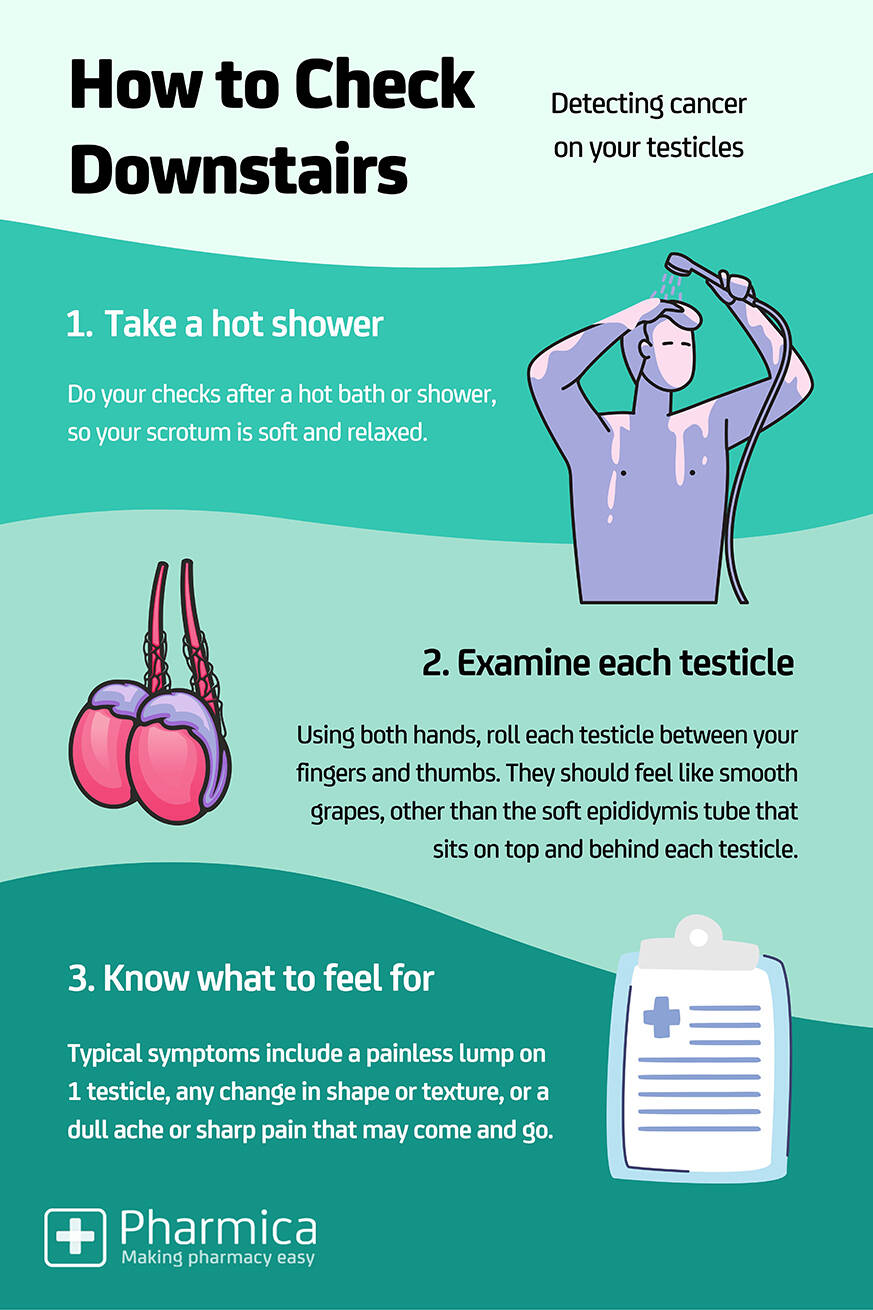How to Check for Testicular Cancer
Learn how to perform these simple self-checks to detect testicular cancer early.
Updated: Wednesday 26 October 2022

From puberty onwards, it’s important to check your testicles are healthy each month. In the UK, 2,300 men are diagnosed with testicular cancer each year, typically affecting those anywhere from 15 to 55 years old. The condition is usually curable if detected early enough, which is why we’ve put together this infographic on how you can recognise the symptoms yourself at home.
Risk Factors for Testicular Cancer
We don’t yet know exactly what causes testicular cancer, but there are certain risk factors that could increase the chance of it developing. These include the following:
- If your brother or father has had testicular cancer
- If you had an undescended testicle as a child
- Having HIV
- Being a white male
- Being taller than average height
- Having carcinoma in situ (CIS) - abnormal cells in the testicles that can develop into testicular cancer if not removed
Treatment for Testicular Cancer
Before treating testicular cancer, you will have a meeting with a team of health specialists (MDT) to discuss the best course of action for you.
For all types of testicular cancer, the first treatment option to consider is surgical removal of the affected testicle (an orchidectomy).
Short courses of chemotherapy or radiotherapy might also be recommended to reduce the risk of the cancer coming back. If the cancer has not responded well to treatment, you may be recommended high-dose chemotherapy with stem cell support, or removal of your retroperitoneal lymph nodes.
If you are experiencing other men’s health conditions, such as erectile dysfunction or premature ejaculation, click below to see our range of clinically proven treatments.
Written by: Toby Watson
Pharmica Medical Writer
Toby (BSc) is an experienced medical writer, producing educational articles on many areas of health including sexual health, fitness, nutrition and mental health.
He particularly enjoys debunking misconceptions around heath conditions and their treatments, researching each topic in detail and writing easily-accessible content.
Find out more about how we ensure the accuracy of our content with our content guidelines.